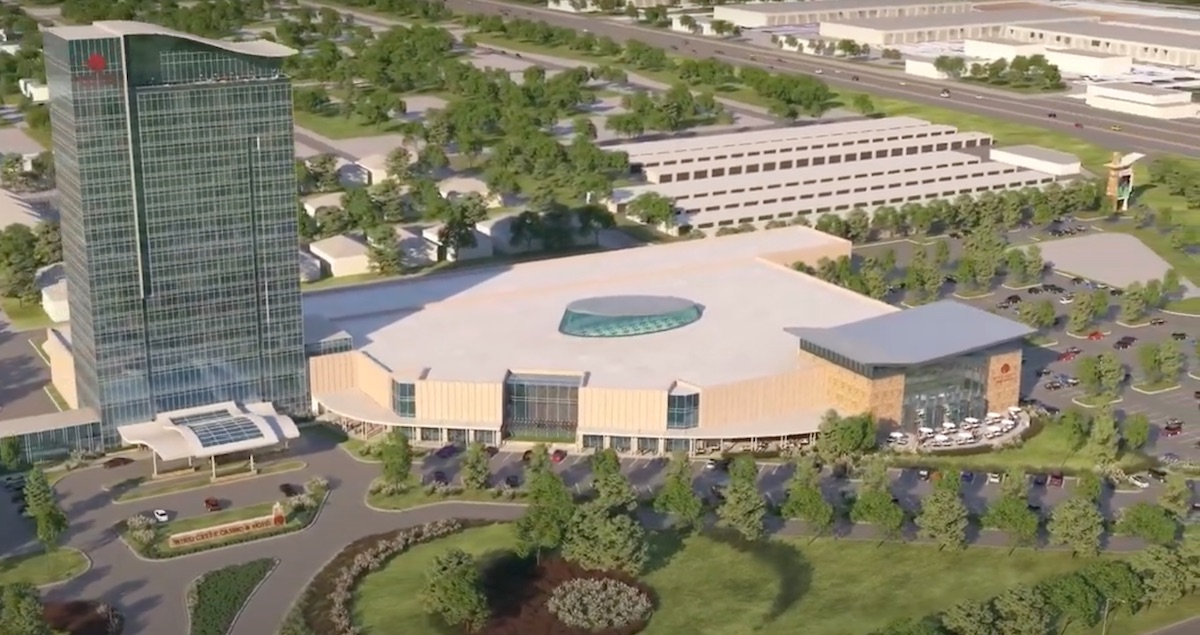
- Details
- By Chez Oxendine
- Gaming
The Illinois Gaming Board has selected a subsidiary of Poarch Band of Creek Indians-owned Wind Creek Hospitality for a much-coveted commercial casino license in the south suburbs of Chicago.
The board ruled today on the “preliminary suitability” of the Alabama-based tribe’s Wind Creek Hospitality subsidiary, Wind Creek Illinois LLC, which proposed building a $440 million, 64,000-square-foot casino straddling the communities of Homewood and East Hazel Creek. After the Illinois Gaming Board ruling, the company can now begin planning, bidding and acquiring local approvals in earnest.
“Wind Creek Illinois is honored to have been found preliminarily suitable for the south suburban casino license by the Illinois Gaming Board today,” Wind Creek Hospitality CEO and President Jay Dorris said in a statement.
Barring any legal challenges from competitors or issues during construction, Wind Creek Hospitality expects the casino to open in 2023.
Wind Creek beat out South Suburban Development’s $300 million project, which would have been managed by the Choctaw Nation of Oklahoma, for the sole casino license in the Southland area.
The selection follows a years-long effort to build a casino in the Southland area, which was made possible after the state added several new commercial gaming licenses in 2019.
Other proposals, also estimated to cost into the hundreds of millions of dollars, included a plan from Ho-Chunk Nation to partner on a casino resort with the city of Lynwood, and a concept from private firm Southland Casino Live to open a casino in Calumet City.
A prior Tribal Business News report chronicled the potential windfall for the communities around the new casino.
Previously, Wind Creek estimated that its project would result in the creation of 800 full-time jobs alongside 600 temporary jobs during construction. The group also promised the creation of the Southland Public Benefit Fund, donating $10 million toward local schools and health services, as well as initial projected revenues between $156 million and $158 million in its first year.
“Throughout this process, we have reiterated the belief that we offer the best location in and for the south suburban region — and will deliver on our commitments to job creation, community and economic investment, sustained operational excellence, and a strong commitment to diversity and inclusion in all phases of construction and operation,” Dorris said in a statement.
